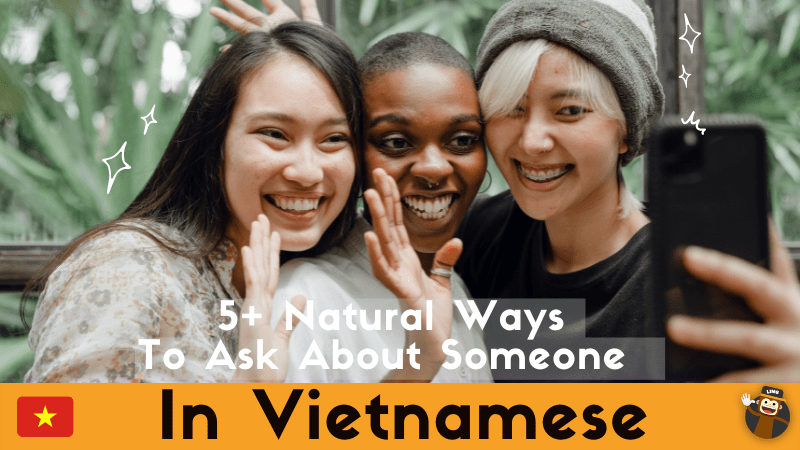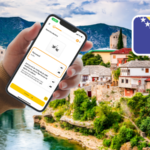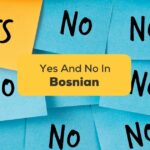Xin chào everyone! Asking about someone is a sign of politeness, showing that you care about that person. Small talks like these can strengthen the relationship between two people. That’s why it’s essential to learn these phrases in any language we want to learn. In this post, we will look at a few different ways to say ‘how are you’ in Vietnamese in different situations.
Before we start, if you don’t know how to greet people in the Vietnamese language, you can check out this blog post. But, if you are ready, let’s get started!
How To Ask ‘How Are You’ In Vietnamese?
Most Vietnamese learners know that bạn có khỏe không means how are you? It is correct but not always valuable for spoken language because Vietnamese people only say that to someone they haven’t seen for a while. So, knowing some other ways to express it in Vietnamese would be of great use. But first of all, let’s explain when to say how are you in Vietnamese.
When To Say How Are You In Vietnamese?
In English, we often use the phrase ‘how are you’ on both formal and informal occasions. We can ask someone we have already met or a total stranger about how they’re feeling. However, in Vietnamese, native speakers use that phrase for someone they know but don’t see or meet up often, such as relatives or acquaintances. Besides ‘how are you,’ Vietnamese people use other phrases to ask each other how they’re feeling. These phrases are more like small conversation starters.
Ways To Say How Are You In Vietnamese
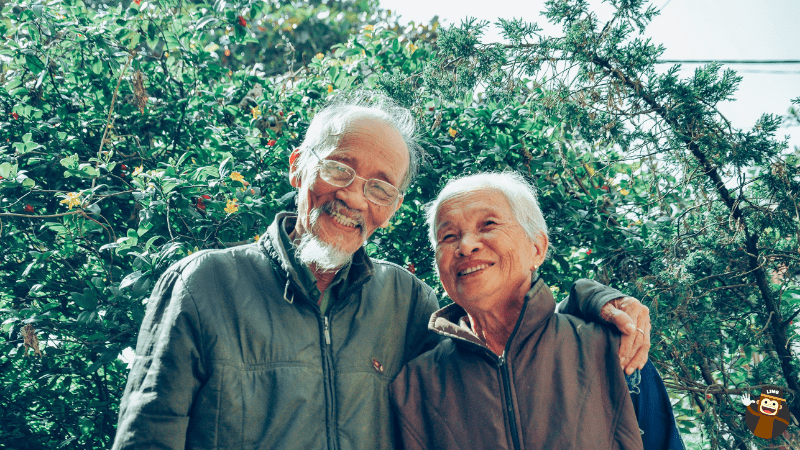
Here are two ways to ask someone how they’re feeling but haven’t seen them for a long time. These phrases can be used in both formal and informal situations.
1. Bạn khỏe không?
Meaning: Are you well?
Khỏe means well and healthy. The word không is placed at the end of the sentence, and it means or not, like making a yes-no question. So you can also say dạo này bạn khỏe không, which means are you feeling well these days?
2. Dạo này bạn thế nào?
Meaning: How are you these days?
Dạo này means these days, and thế nào means how in the Vietnamese language.
Phrases To Say Instead Of ‘How Are You’
We don’t have to ask people how they are every time we meet them. There are some other phrases that we can use that sound more natural. If you want to speak like native Vietnamese people, you can use these alternative phrases.
3. Dạo này công việc thế nào?
Meaning: How is work these days?
Công việc means work and job in Vietnamese. You can talk about someone’s work-life by asking these questions. It may be a better alternative to ‘how are you’ in some specific situations.
4. Gia đình của bạn thế nào?
Meaning: How is your family?
Gia đình means family in Vietnamese. If you want to ask about a specific family member, you can replace the word gia đình with the family member’s name or title. For example, ba mẹ của bạn thế nào? (How are your parents?).
Don’t forget that it is crucial to respect and remember the elderly family members in Vietnamese culture.
Asking About Someone That You See Often

So far, we have talked about different ways to say ‘how are you’ in Vietnamese to someone you haven’t seen for a while. Now, we will look at the phrases you can use when having a conversation with someone you often see, such as family, friends, neighbors, coworkers, etc.
5. Bạn đang làm gì đó?
Meaning: What are you doing?
In the Vietnamese language, đang làm means to be doing, and gì is the question word for what. You can ask this question instead of saying how are you to people you know.
6. Bạn đang đi đâu đo?
Meaning: Where are you going?
In Vietnamese, đang đi means to be going. And đâu is the question word for where. Vietnamese people use this phrase a lot when they bump into a friend on the street. It can be a simple conversation starter.
Simple Responses To How Are You In Vietnamese

Here are the 10 most common and useful responses that you can give to the questions above. These phrases are used by native Vietnamese speakers almost every day. Just a tiny reminder; mình and tôi both mean I in English.
• Tôi khỏe – I’m fine
• Mình khỏe con bạn – I’m fine, and you?
• Tôi cũng khỏe – I’m fine too
• Mình vẫn bình thường – Fine as usual
• Không tồt lắm – Not so good
• Dạo này mình hơi bạn – These days I’m quite busy
• Vẫn tồt – Still good
• Tôi cảm thấy tốt – I’m great
• Tôi bình thường – I’m okay
• Tôi cảm tồi tệ – I’m feeling bad
• Cảm ơn bạn đã hỏi thăm – Thank you for asking
• Tôi thấy không tệ lắm – I’m not bad
• Tôi buồn ngủ – I’m sleepy
Example Conversation In Vietnamese
Why don’t you try to read and understand this short dialog in the Vietnamese language? After you’ve finished reading this post, it shouldn’t be that difficult to do so.
Liem: Bạn khỏe không?
Xuan: Mình khỏe, con bạn?
Liem: Tôi cũng khỏe. Gia đình của bạn thế nào?
Xuan: Vẫn tồt. Cảm ơn bạn đã hỏi thăm.
Do You Want To Learn Vietnamese?
Do you want to learn Vietnamese but don’t know which resources are best for you? I have an excellent suggestion for you!
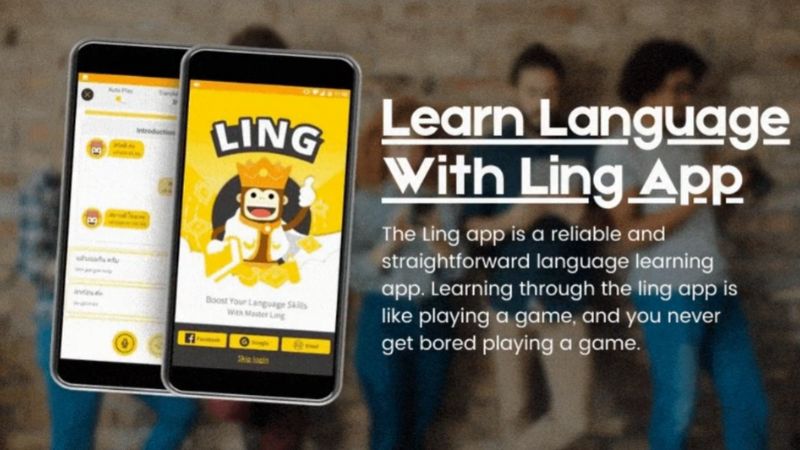
Ling App by Simya Solutions is a language learning app that offers more than 60 languages and masters the core language skills. Besides that, you can learn some useful grammar and vocabulary. It is enough to use Ling App for just 15 minutes a day! Moreover, the app has both mobile and desktop versions, so you can keep on learning anywhere!
So, what are you waiting for? Try this awesome language app, loved by millions of users and featured by many digital platforms! Download it from App Store and Play Store for free!
